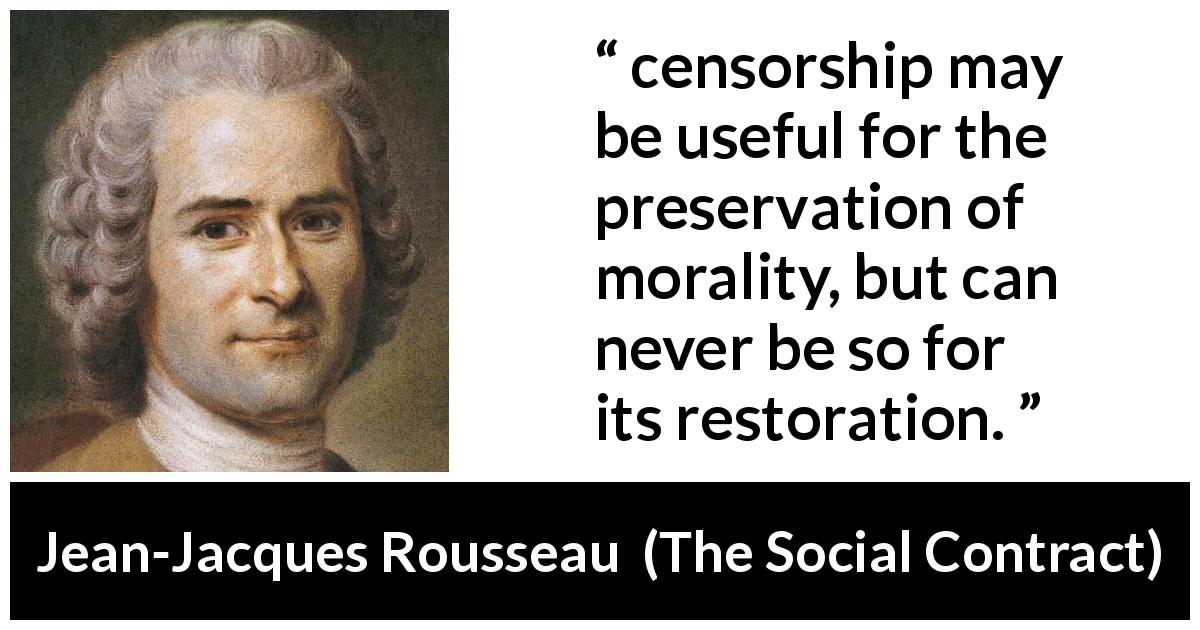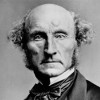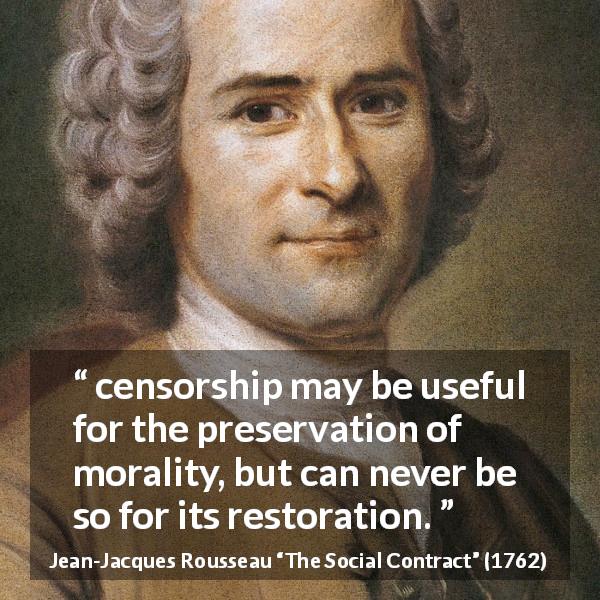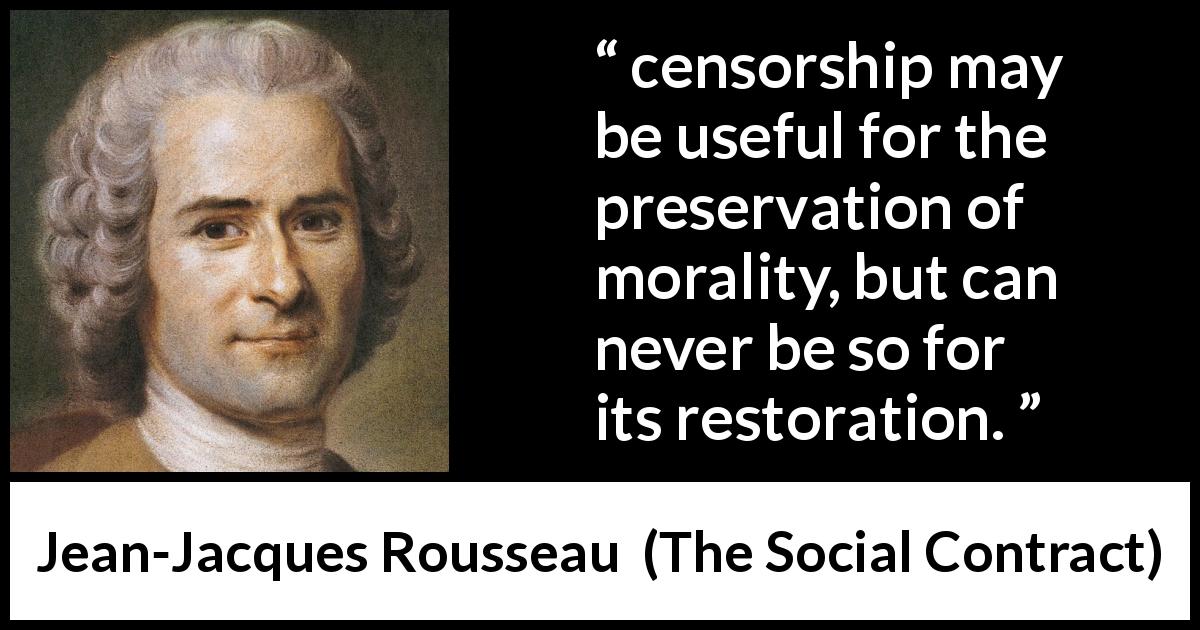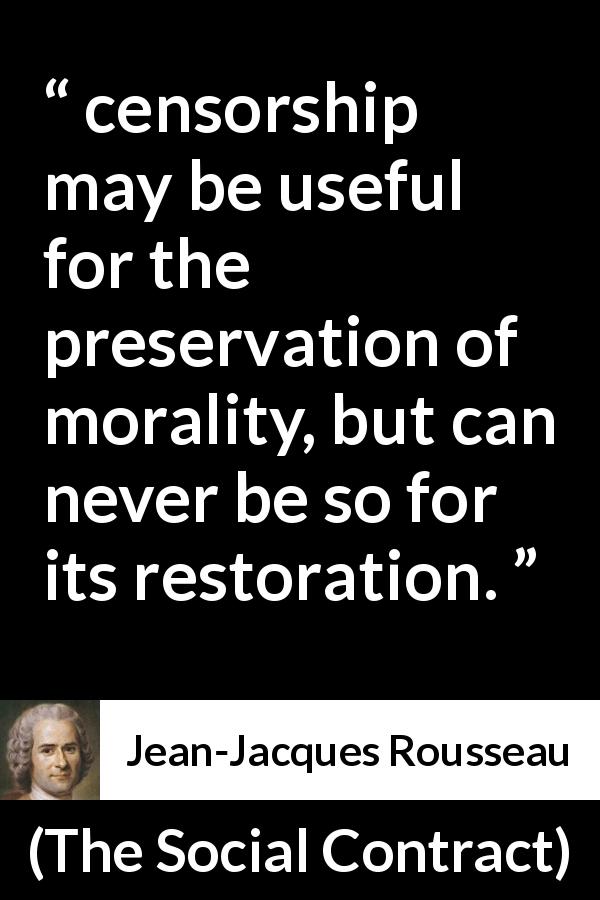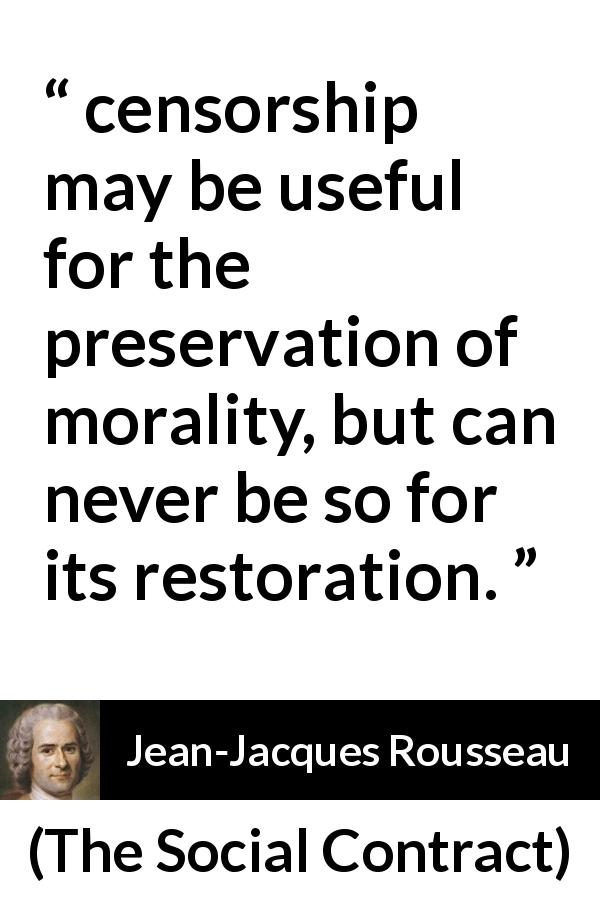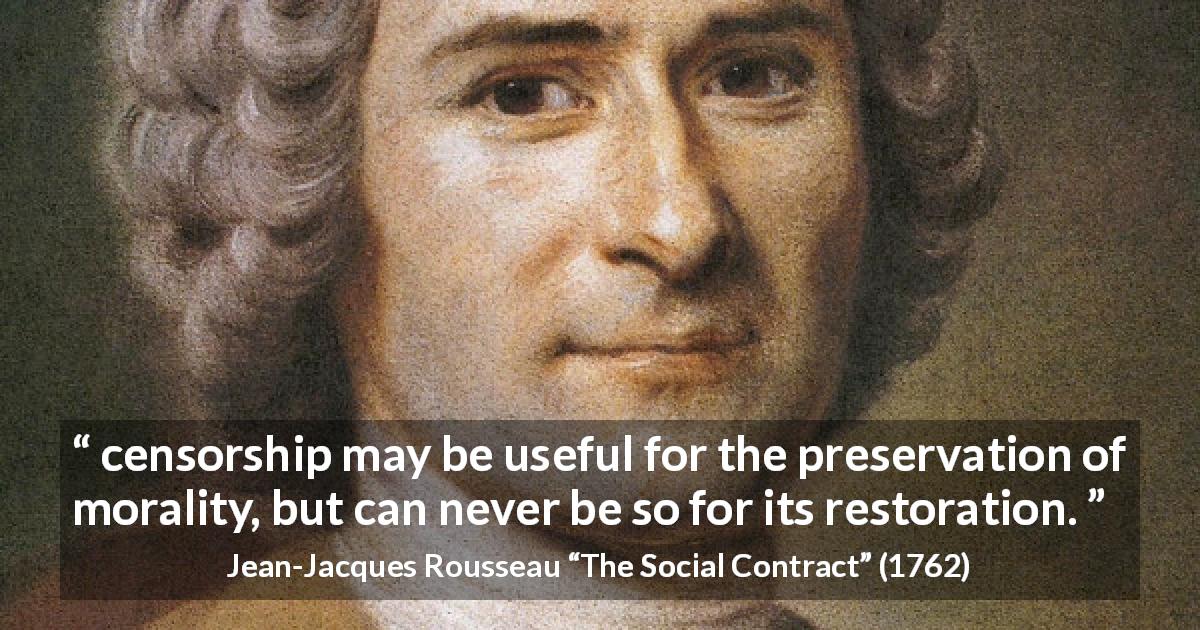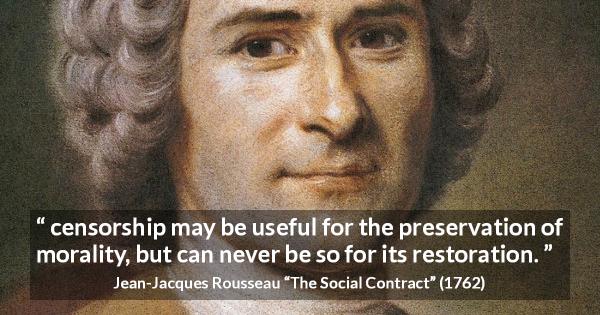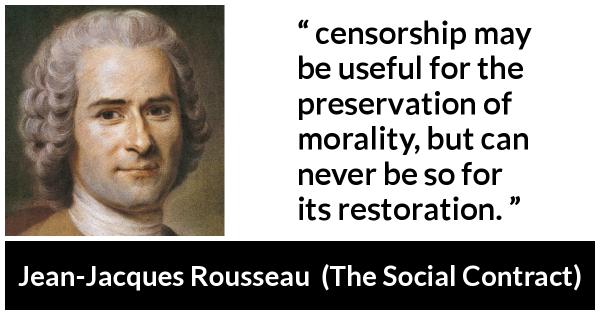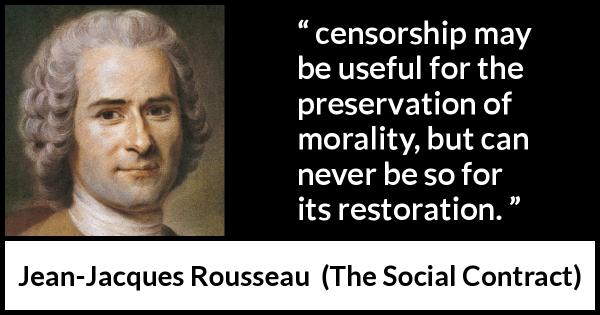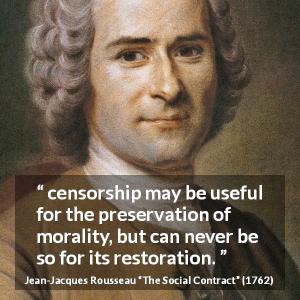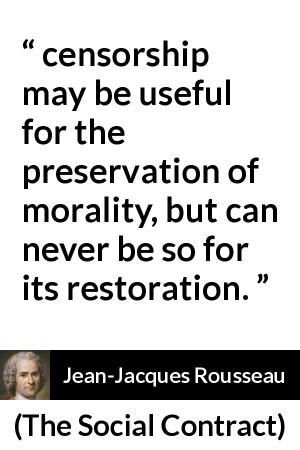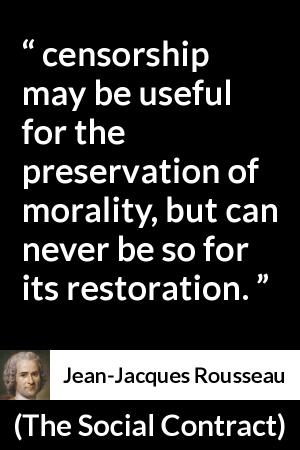“ censorship may be useful for the preservation of morality, but can never be so for its restoration. ”
Jean-Jacques Rousseau, The Social Contract (1762). copy citation
| Author | Jean-Jacques Rousseau |
|---|---|
| Source | The Social Contract |
| Topic | morality censorship |
| Date | 1762 |
| Language | English |
| Reference | Of the Social Contract, or Principles of Political Law, Book IV |
| Note | Translated by George Douglas Howard Cole |
| Weblink | https://en.wikisource.org/wiki/The_Social_Contract/Book_IV |
Context
“The opinions of a people are derived from its constitution; although the law does not regulate morality, it is legislation that gives it birth. When legislation grows weak, morality degenerates; but in such cases the judgment of the censors will not do what the force of the laws has failed to effect.
From this it follows that the censorship may be useful for the preservation of morality, but can never be so for its restoration. Set up censors while the laws are vigorous; as soon as they have lost their vigour, all hope is gone; no legitimate power can retain force when the laws have lost it.
The censorship upholds morality by preventing opinion from growing corrupt, by preserving its rectitude by means of wise applications, and sometimes even by fixing it when it is still uncertain.” source
From this it follows that the censorship may be useful for the preservation of morality, but can never be so for its restoration. Set up censors while the laws are vigorous; as soon as they have lost their vigour, all hope is gone; no legitimate power can retain force when the laws have lost it.
The censorship upholds morality by preventing opinion from growing corrupt, by preserving its rectitude by means of wise applications, and sometimes even by fixing it when it is still uncertain.” source
Original quote
